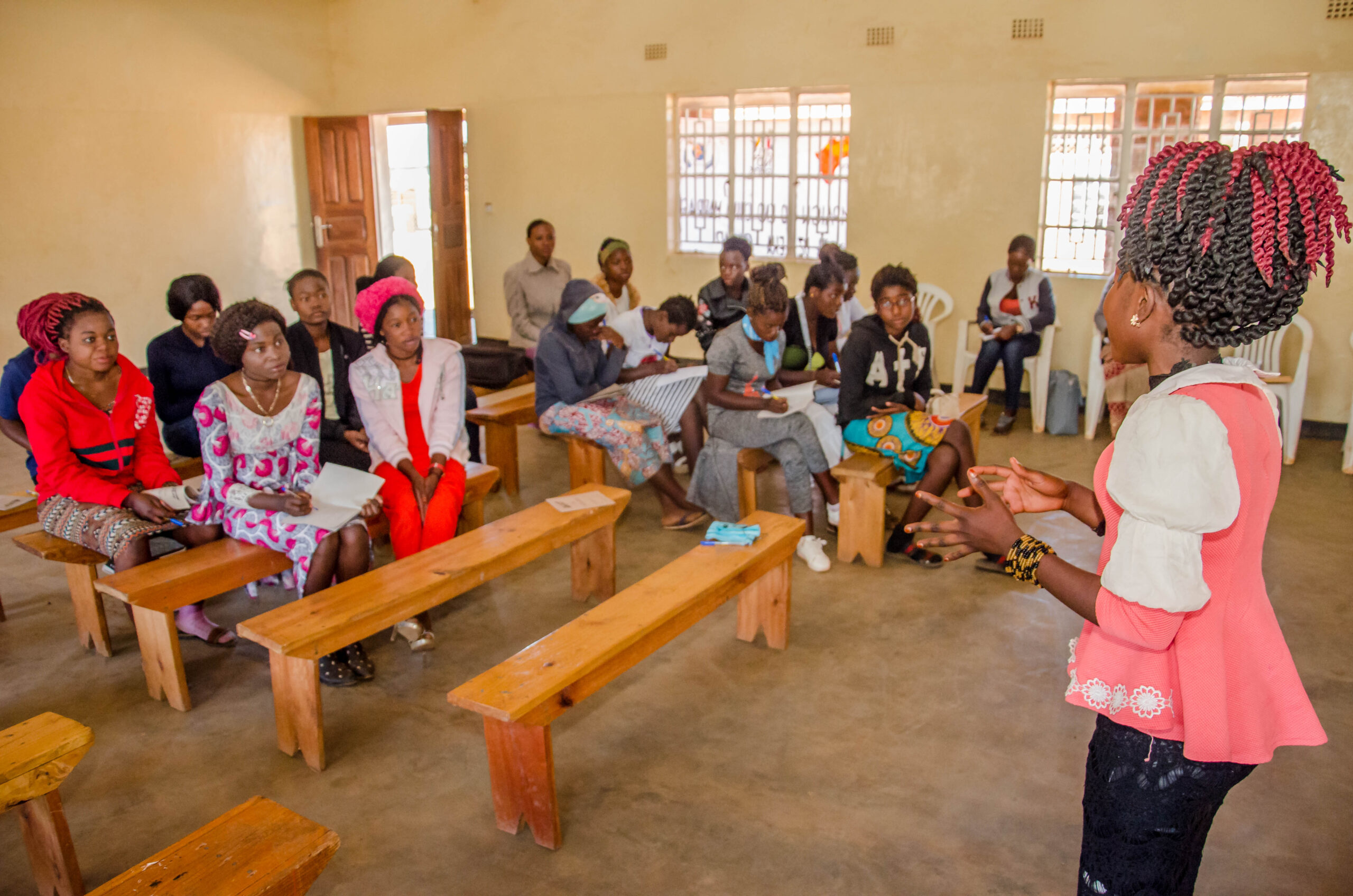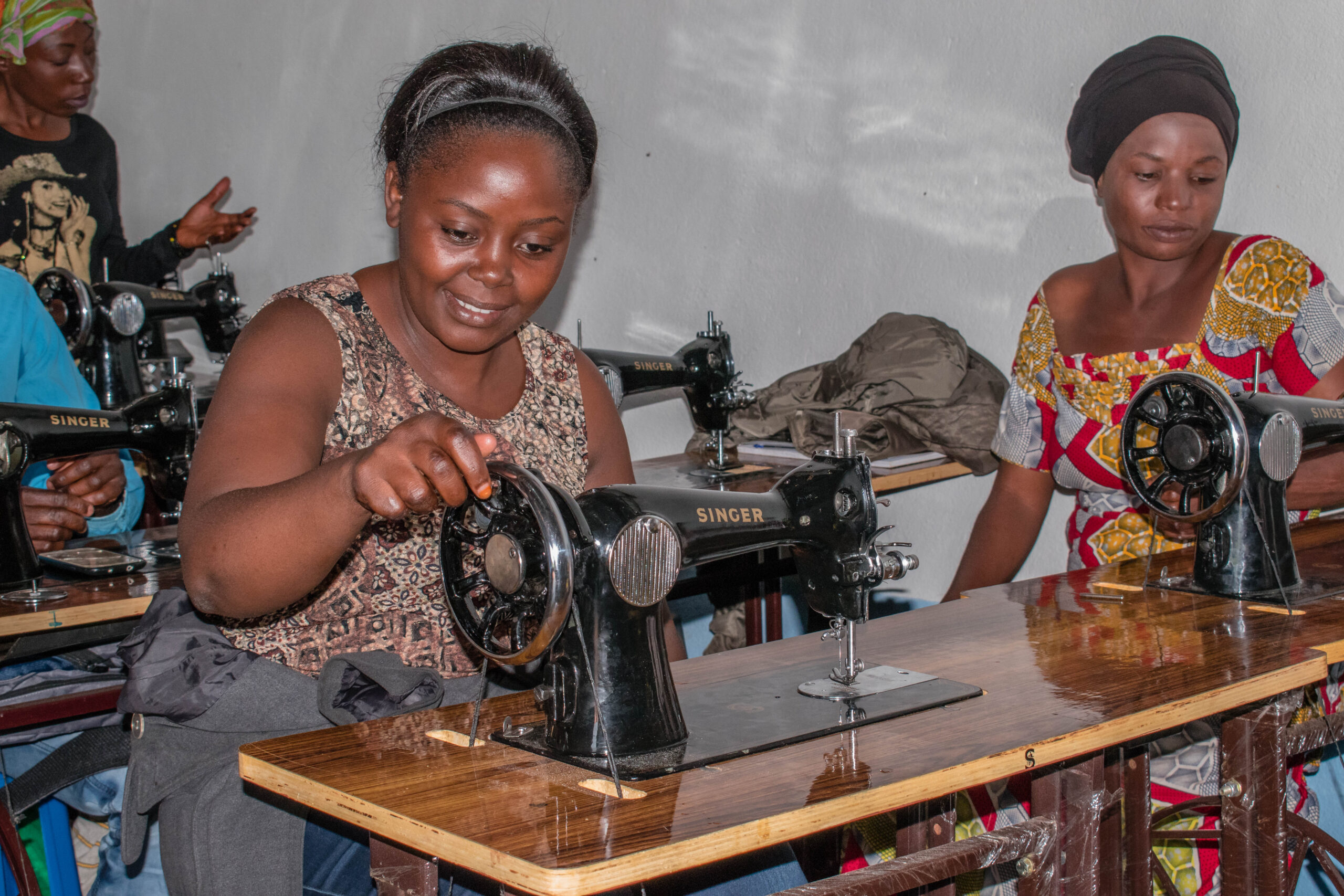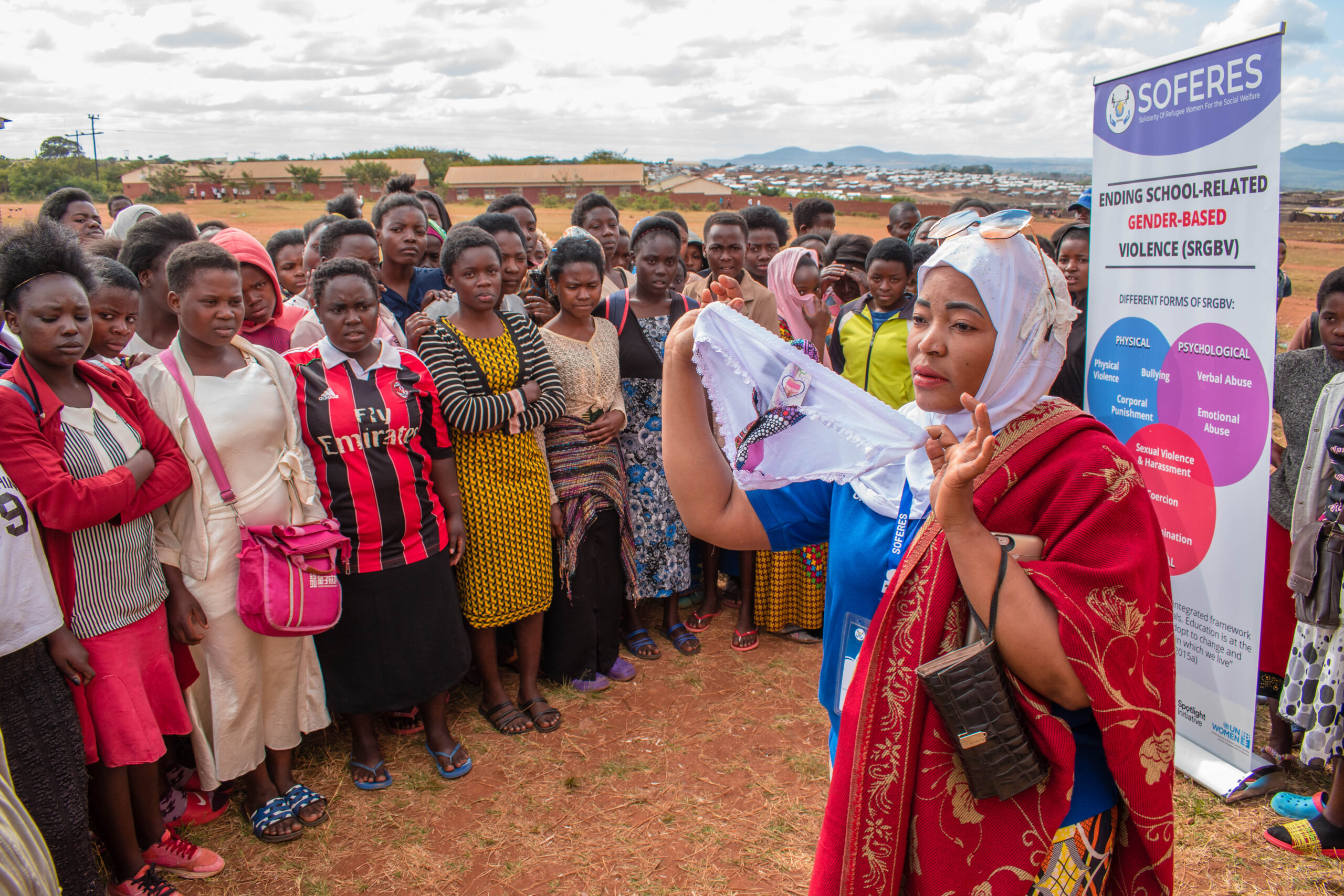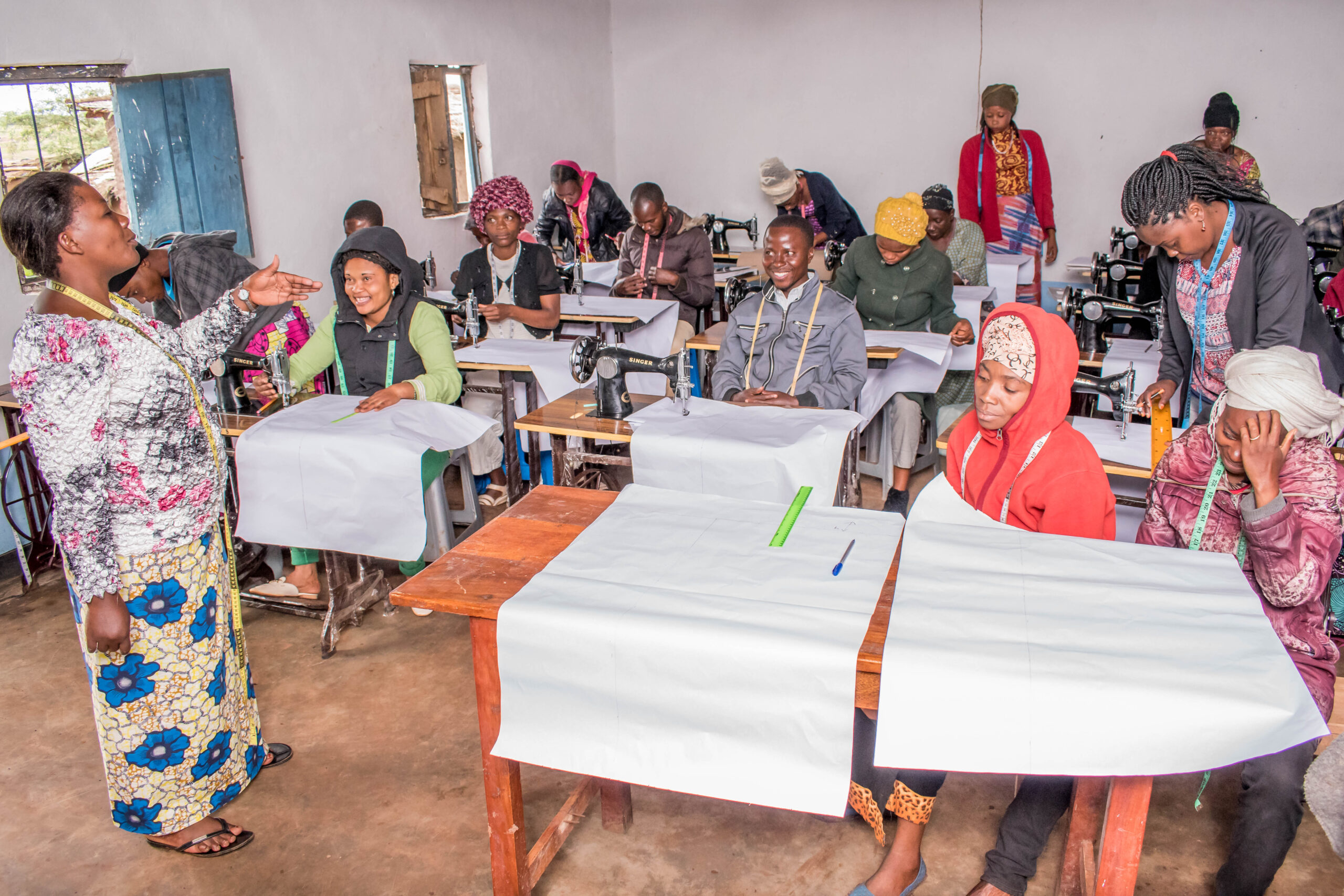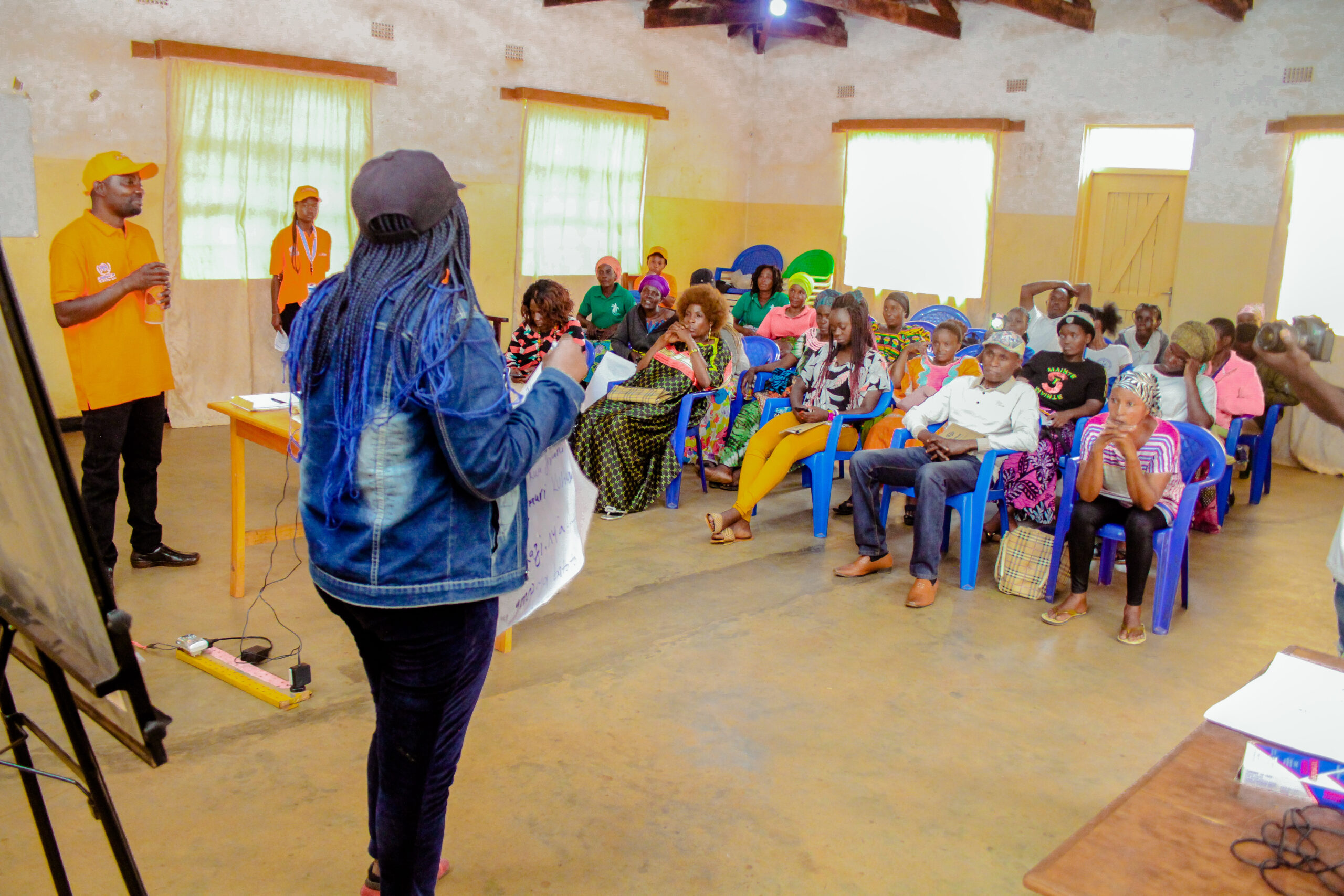From Silence to Leadership: Esther’s Story!
This story was documented and produced with financial support from UNHCR under the “Safe from the Start Impactful GBV Interventions Pilots in Operations” project, implemented by SOFERES in Dzaleka Camp. For years, Esther, a 35-year-old Rwandan refugee, endured intimate partner violence in silence. What started as verbal and emotional abuse early in her marriage escalated into physical violence, leaving her deeply scarred—both physically and emotionally. Each time she considered speaking out, fear held her back. She worried about being judged by her community, about bringing shame upon her family, and, most of all, about what would happen to her children if she left. “I thought it was my duty to suffer in silence,” Esther recalls. “I believed no one would understand, and I feared being blamed for what was happening to me.” The years passed, and the abuse continued. But when Esther’s husband threatened her life in a violent attack, she realized she could not endure it any longer. A trusted friend, who had attended a SOFERES awareness session on Gender-Based Violence (GBV), encouraged her to seek help. Finding the Strength to Escape With courage, Esther reported the violence to SOFERES, Plan International Malawi, and Jesuit Refugee Services (JRS). These organizations acted swiftly to protect and support her. Through these programs, she learned about financial literacy, income-generating skills, and savings management—all essential tools for rebuilding her life. “I learned that I could stand on my own two feet,” she says. “The training helped me regain my confidence. I finally saw a way out of the darkness.” Becoming a Leader for Women’s Empowerment With time, Esther’s life transformed. No longer trapped in fear, she started her own small business selling handmade crafts and farm produce. She gained not only financial stability but also a newfound sense of independence. Determined to help others, she became a leader in a local women’s savings group, where she teaches other refugee women how to manage their finances, save for the future, and become self-sufficient. Many of these women are also survivors of GBV, and through Esther’s guidance, they find hope and strength to rebuild their lives. “I no longer live in fear,” Esther declares proudly. “By sharing my story, I help others see that freedom is possible.” Breaking the Cycle of Silence and Fear Esther’s journey from a survivor of violence to a champion for women’s empowerment is a testament to the power of support, education, and economic independence. Her work is not just about financial literacy—it’s about breaking the silence surrounding GBV in refugee communities. Through her advocacy, she is challenging deep-rooted beliefs that keep women trapped in abusive relationships. She encourages them to speak up, seek help, and reclaim their rights. “No woman should have to live in fear,” Esther says. “We deserve to be safe. We deserve to be heard. And we deserve to build a future free from violence.” Her story is proof that when survivors are empowered, they become the strongest voices for change—leading others out of the darkness and into a future filled with hope.

